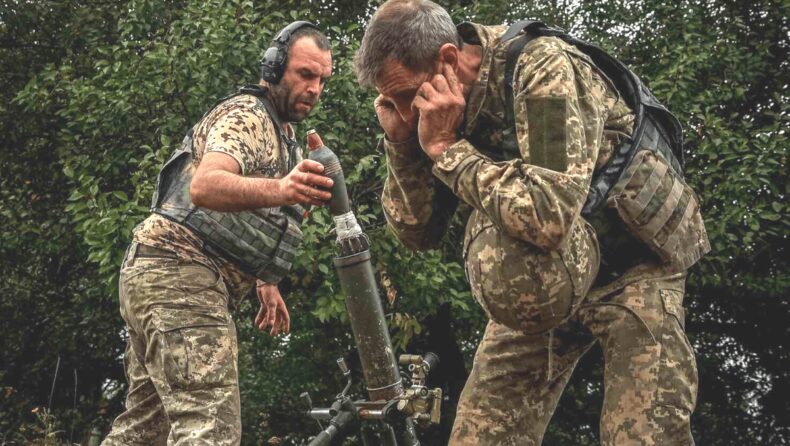The elections in Donetsk, Luhansk, Kherson, and Zaporizhzhia, according to the Russian statement, were conducted in accordance with Russia’s international law.
A day after the completion of what Ukraine and the West have referred to as illegal sham referendums, Russia’s foreign ministry made a statement on Wednesday that action would be taken soon to meet the aspirations of four occupied Ukrainian regions to become a part of Russia. The statement was delivered one day after the completion of the referendums.
The Ministry of Regional Development and Construction
According to the statement made by the Ministry of Regional Development and Construction, it has been said that “in the near future, a crucial stage lies ahead in our joint actions to fulfill the aspirations of the residents (of the four regions) to be together with Russia.”
The West and Ukraine have both stated that the hastily organised exercise, which consisted of ballot boxes being carried door-to-door in areas that were occupied by Russian troops, was both fraudulent and unlawful.
The four occupied regions
According to the statement released by Russia, the elections in Donetsk, Luhansk, Kherson, and Zaporizhzhia were conducted in a manner that was compliant with international law.
Kherson
Kherson, a city of a million before the conflict, is close north of Russian-annexed Crimea. Russian military control nearly the whole region. Kherson is the target of a counteroffensive Ukraine has been organising for weeks, including destroying Dnipro River bridges to cut off Russia’s supply lines and forces.
Pro-Russian authorities have been bombed after Russia occupied Kherson, the regional capital, early in the war. Russia is also annexing a small piece of Ukraine’s Mykolayiv province, which it occupies.
Zaporizhzhia
After fighting at the largest nuclear power plant in Europe disrupted power supply to the facility and stoked fears of a radioactive disaster, Zaporizhzhia came to the attention of the entire world. The provincial capital, also known as Zaporizhzhia, which was home to about half of the region’s 1.6 million inhabitants before the war, is not under Russian control. Nor is the nuclear power plant or about 70% of the entire province.
Donetsk And Luhansk
Since 2014, Ukrainian government troops have been engaged in combat with two breakaway entities that are supported by Russia. These entities are the self-proclaimed Donetsk People’s Republic (DPR) and the Luhansk People’s Republic (LPR).
On February 21, three days before Russia invaded Ukraine, Vladimir Putin acknowledged both of these territories as “independent states” and extended Russia’s support to them.
With the help of these two proxy authorities, Russia controls practically the entire territory of Luhansk in Ukraine, while in Donetsk, it only has control over around 60 percent of the city. Before the invasion, the two areas, which are now known collectively as the Donbas, had a combined population of approximately 6 million people.
They were a predominantly Russian-speaking centre of coal mining and heavy industry until their economies were wrecked by the fighting that began in 2014 and has continued since then. This week, the Kremlin announced that its “special military operation” in Ukraine would continue at least until the entire Donetsk region is “liberated.” This statement was made public this week.
Together, they make up about 15% of Ukraine’s total land area, each roughly the size of the U.S. state of Massachusetts.
Crimea, 2014
It looks like a ‘carbon copy’ similar to what President Putin did in March 2014, when he annexed the Crimean peninsula from Ukraine after seizing it from the Ukrainian government, by holding a referendum that was roundly condemned by the international community, and then having it ratified by a majority of parliamentarians in Russia.
Except that only a few casualties were sustained during Russia’s successful invasion of Crimea.
India’s stance on the Russian-Ukrainian war
According to Harsh V. Pant, vice president of studies and foreign policy at the Delhi-based Observer Research Foundation, he highlighted that India is in a unique position where it needs Russia in the short term to manage its neighbour, China.
The countries’ longstanding friendship will continue
Despite Prime Minister Narendra Modi’s public criticism of Russian President Vladimir Putin’s controversial handling of the conflict in Ukraine, analysts say the two countries’ longstanding friendship will continue.
“Because of its special situation, India currently relies on Russia to help it control China” said Harsh V. Pant, VP of Studies and Foreign Policy at the Delhi-based Observer Research Foundation.
Strong military ties for decades
Sameer Lalwani, a senior expert at the U.S. institute of peace, pointed out that the military ties between India and Russia, despite any decline, will remain strong for the decades to come.













